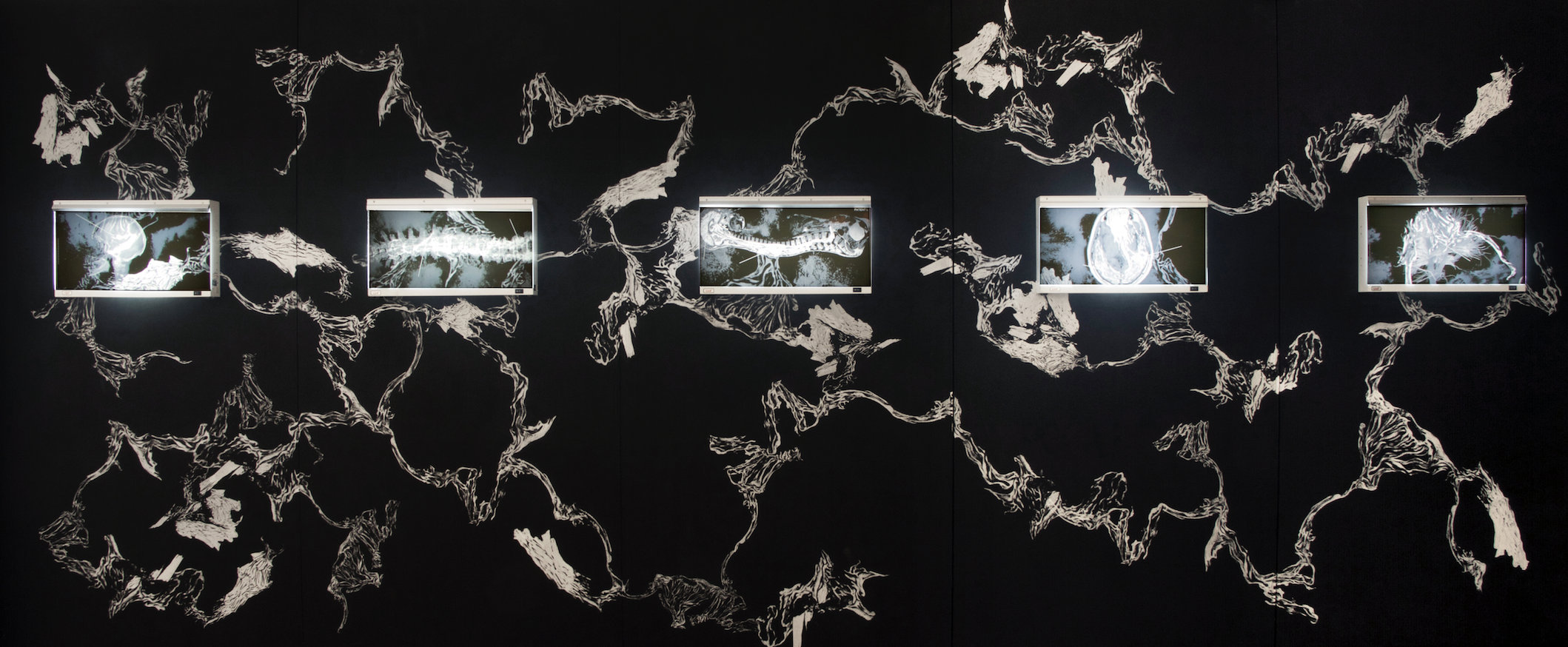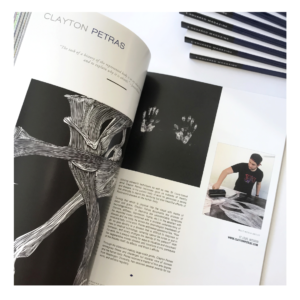A new study centering on the gut microbiome holds potential answers to Parkinson’s Disease.
Researchers at the University of Helsinki have discovered a potential cause of Parkinson’s disease – certain strains of Desulfovibrio bacteria. The study enables the screening of the carriers of Desulfovibrio strains and the removal of the bacteria from the gut. Strains in patients with Parkinson’s disease cause aggregation of the α-synuclein protein in the intestine and later, the brain.
My uncle had Parkinson’s, and I know numerous people who live with the disease, but this revelatory discovery shines a light on possible treatment for people living with Parkinson’s!
Today, I would like to showcase the art/work of Clayton Petras, formerly featured in Issue #4 of E-Squared Magazine.
“The task of a history of the represented body is to say what has not been shown, and to explain why it is absent.” – James Elkins
Utilizing old-world techniques as well as new, St. Louis-based artist Clayton Petras impresses upon us subjects of identity and disease. In his current body of work he generates a series that attempts to depict the terrifying but also beautiful effects of Parkinson’s disease on the human body.
Turning that which is physical into the visual with marks of detail and grace, Clayton Petras documents the process of neurodegeneration. In depicting the uncontrollable symptoms (tremors, stiffness, depression, mania, etc.) in the abstract with his imprinted marks combined with a societal understanding of disease and the body, he shows the chronological breakdown of mind and body. In his work, Petras addresses questions like, “How do we give identity to a disease that is difficult to diagnose or view on medical technology, currently cannot be cured or put in remission, and slowly changes the identity of the patient?” With his work, he is always looking for ways to visualize and document the degenerative mental disease and transform it into portrayals of the disease itself, its effects, and those it afflicts.
Through his statement-making large-scale prints, Clayton Petras reimagines illness and challenges our societal view of disease and the human body. Petras received a master of fine arts degree from Washington University, has received several awards for his work, and exhibits regularly.

